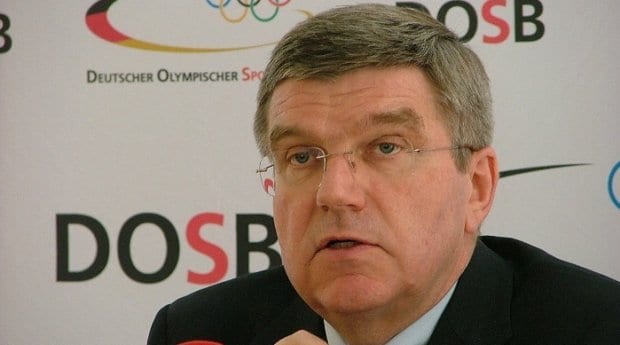Following global outcry over Russia’s enactment of anti-gay legislation in the lead-up to the Sochi Winter Games, the International Olympic Committee (IOC) has reportedly informed future host countries that it will include anti-discrimination language in host-city contracts reflective of Principle 6 of the Games’s charter.
Almaty, Kazakhstan; Beijing, China; and Oslo, Norway are still in the running to host the 2022 Winter Games. The IOC is expected to select the winner in July next year.
Principle 6 does not currently include sexual orientation and gender identity as prohibited grounds of discrimination.
It states that “any form of discrimination with regard to a country or a person on grounds of race, religion, politics, gender or otherwise is incompatible with belonging to the Olympic Movement.”
Athlete Ally, a US-based organization that works to raise awareness about LGBT athletes in sports, as well as All Out, Human Rights Watch and other human rights groups, had pressed the IOC’s new president, Thomas Bach, to introduce the anti-discrimination clause.
The executive directors of Athlete Ally and All Out welcome the contract wording. Hudson Taylor says the additional language highlights the IOC’s recognition that every athlete’s rights have to be protected, while Andre Banks says it sends a “clear message” to host cities that discrimination against LGBT athletes will not be tolerated.
Shawn Gaylord, Human Rights First’s advocacy counsel on LGBT rights, would like to see the IOC go further, saying that he doesn’t think the clause, in and of itself, solves the problem.
“We’ve always believed, as other advocacy groups, that what we really need is for Principle 6 to be more explicit in protecting sexual orientation and gender identity — literally update it to include those words,” he says.
Human Rights First believes the IOC can make those additions to Principle 6 when its board meets in December, Gaylord adds.
Xtra has not yet received a response from the IOC.
The fact that the current wording of Principle 6 is now being applied more directly to the selection process is a good thing, Gaylord acknowledges, but the problem is that people will not interpret the principle as being inclusive of those categories.
“What we should be doing is encouraging those countries which have already been selected for future Olympics to act in accordance with Principle 6 at its most full understanding,” he contends. “I would assume all these countries should move forward in that spirit, but nailing it down more specifically will give it a little more teeth for future site selection.”
Human Rights First notes that Kazhakstan is mulling a “gay propaganda” law resembling the one Russia now has on its books. Various anti-gay activists and and lawmakers in the country have called for gay people to be prohibited from doing outreach in public spaces, holding public office and joining the military.
As Kazhakstan is seeking to be a Winter Games host, it’s “not a very smart move” to target LGBT people for discrimination in its legislation, Gaylord says. “I do think there should be a strong screen for human rights standards.”


 Why you can trust Xtra
Why you can trust Xtra


